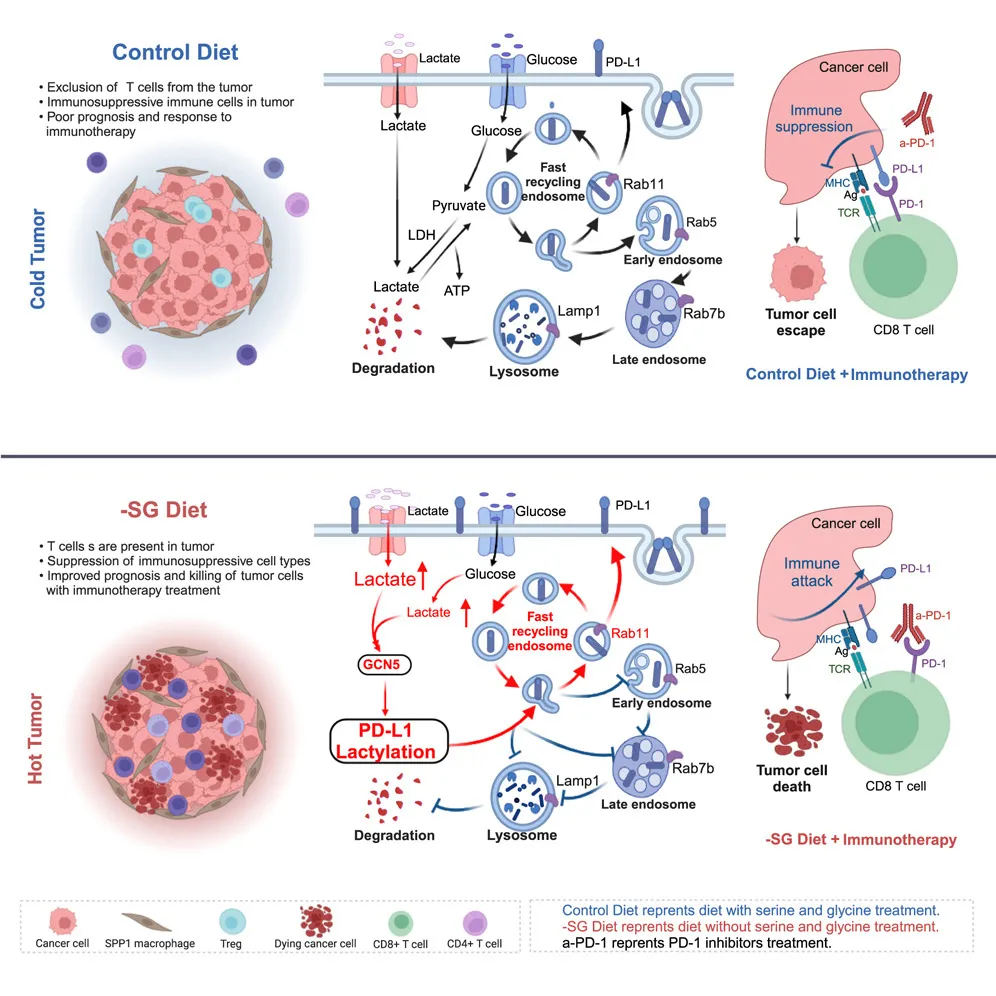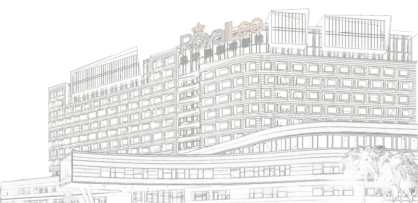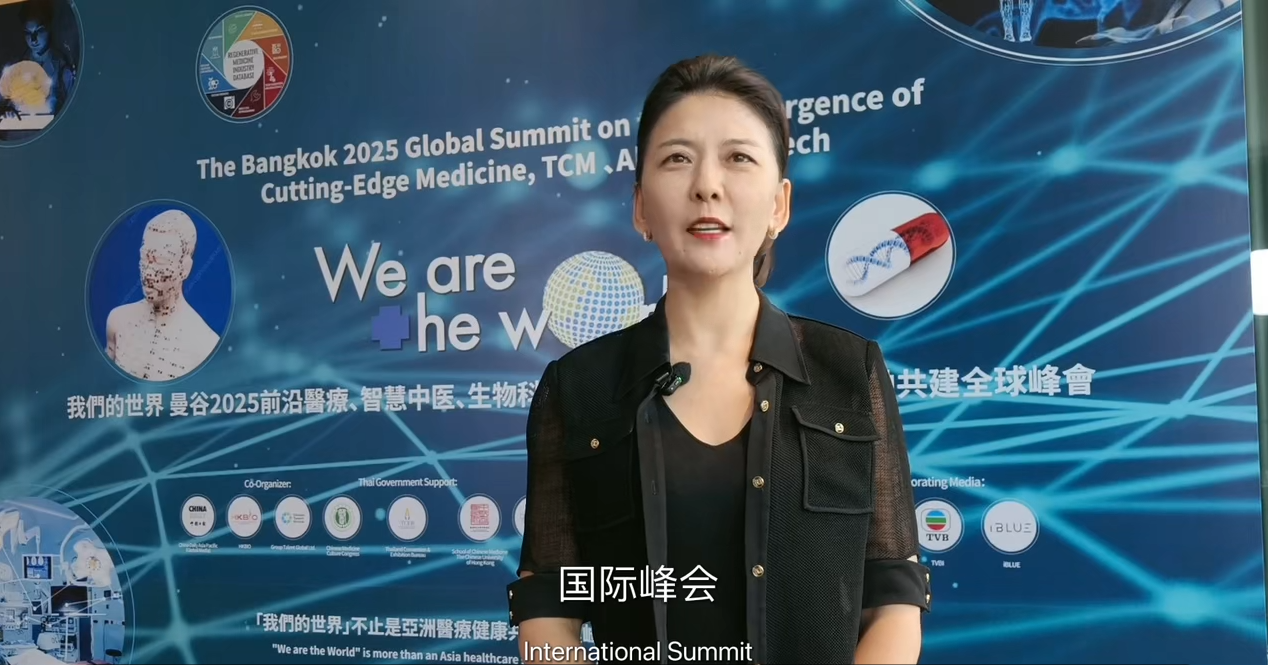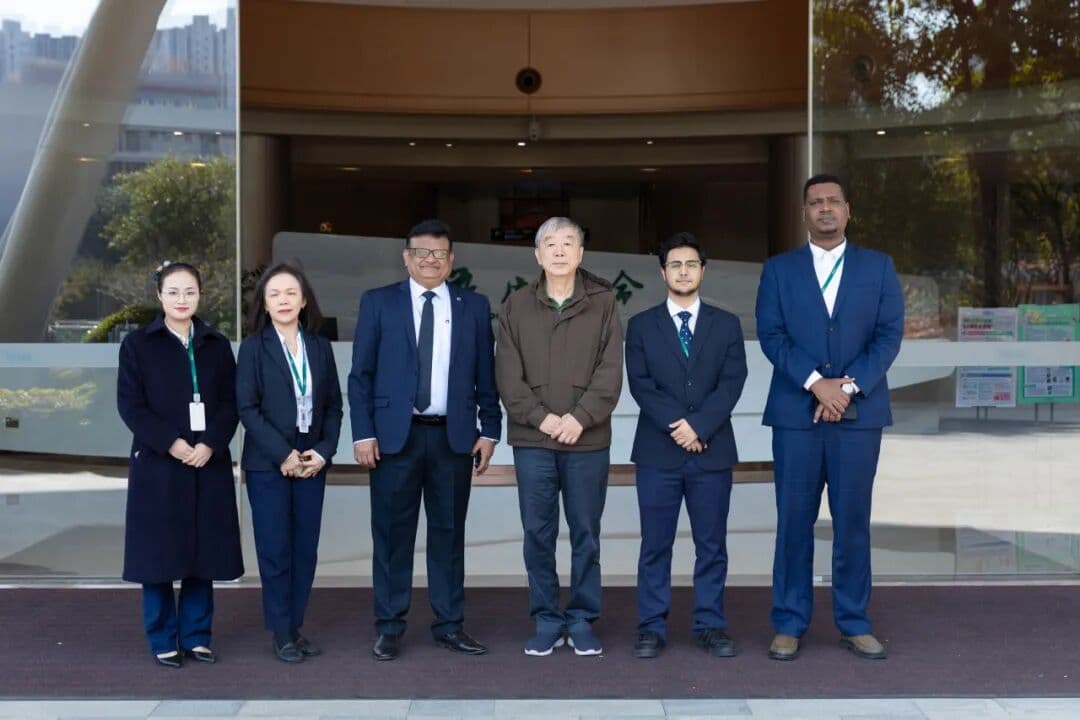The effects of a serine/glycine-free diet (-SG diet) on colorectal cancer (CRC) remain unclear; meanwhile, programmed cell death protein 1 (PD-1) inhibitors have shown poor efficacy in most CRC patients.
On November 21, 2024, a research team led by Ma Xuele and Shi Hubing from West China Hospital of Sichuan University published a paper in Cell Metabolism titled "Dual Impacts of Serine/Glycine Free Diet in Enhancing Antitumor Immunity and Promoting Evasion via PD-L1 Lactylation."
The study demonstrated that the -SG diet can inhibit CRC growth and promote the accumulation of cytotoxic T cells, thereby enhancing antitumor immunity. Additionally, the research team discovered that the lactylation of PD-L1 in tumor cells is a mechanism of immune evasion during the antitumor response mediated by cytotoxic T cells. Blocking the PD-1/PD-L1 signaling pathway can restore the function of CD8+ T cells recruited by the -SG diet, indicating the potential of combining -SG diet with immunotherapy.
The research team also conducted a single-arm phase I study (ChiCTR2300067929). The main results showed that the -SG diet is feasible and safe for modulating systemic immunity. Secondary outcomes included patient tolerance and potential antitumor effects. Overall, the findings highlight the promising therapeutic potential of the -SG diet in the treatment of solid tumors.




 (+86)18613012387
(+86)18613012387 info@royallee.cn
info@royallee.cn EN
EN CN
CN TH
TH IDN
IDN  AR
AR





